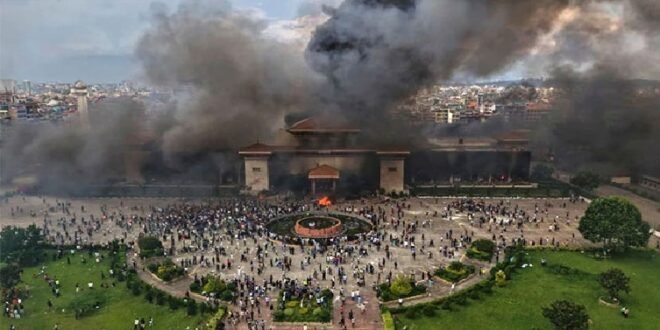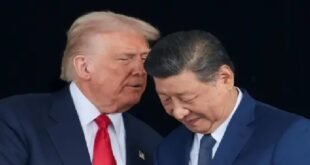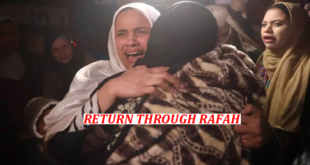16-09-2025
KATHMANDU: Nepal’s major political parties have demanded the country’s president reinstates the parliament he dissolved following deadly anti-corruption protests.
In a statement, eight parties including the Nepali Congress, CPN-UML and Maoist Centre, said President Ram Chandra Poudel acted unconstitutionally.
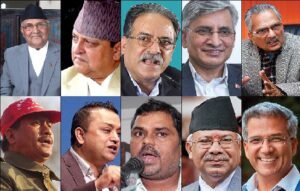 Poudel dissolved the House of Representatives on Friday upon the recommendation of newly appointed interim Prime Minister Sushila Karki, it was also a key demand from the protest movement.
Poudel dissolved the House of Representatives on Friday upon the recommendation of newly appointed interim Prime Minister Sushila Karki, it was also a key demand from the protest movement.
More than 50 people were killed in clashes with riot police during this week’s mass protests sparked by a ban on social media platforms. Karki was appointed after a deal was reached with protest leaders.
The ban was lifted on Monday but by then the protests had swelled into a mass movement. Angry crowds set fire to parliament and government buildings in the capital Kathmandu on Tuesday, forcing then-Prime Minister KP Sharma Oli to resign.
Nepal gets first female PM after deadly unrest
Nepal’s former Supreme Court chief justice Sushila Karki has become the country’s interim prime minister after deadly anti-corruption protests ousted the government.
The 73-year-old was sworn in during a brief ceremony, becoming the first woman to lead the impoverished Himalayan nation after a deal was reached with protest leaders.
More than 50 people were killed in clashes with riot police during this week’s mass protests sparked by a ban on social media platforms.
The ban was lifted on Monday but by then protests had swelled into a mass movement. Angry crowds set fire to parliament and government buildings in the capital Kathmandu on Tuesday, forcing Prime Minister KP Sharma Oli to resign.
Earlier on Friday, President Ram Chandra Poudel’s press adviser had confirmed to media that Karki would take the oath of office that evening.
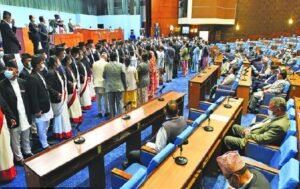 The agreement between the president and the protest leaders was reached after days of consultations. Legal experts were also involved.
The agreement between the president and the protest leaders was reached after days of consultations. Legal experts were also involved.
Parliament was dissolved late on Friday and it was announced that general elections would be held on 5 March next year.
Karki is expected to appoint ministers to her cabinet within a few days.
She is widely regarded as having a clean image, and her leadership of the interim government is being supported by student leaders from the so-called “Gen Z” movement but her cabinet will face multiple challenges, including restoring law and order, reconstructing parliament and the other key buildings that were attacked, reassuring the Gen Z protesters who want change and others in Nepal who are fearful its young democracy and constitutional order could be derailed.
Another key task will be to bring those responsible for violence to justice.
Karki’s appointment is a compromise resulting from talks that were brokered by Nepal’s army chief this week. Elated Gen Z supporters are expressing their happiness on social media and many see this as the next step in the new political course they want the country to take.
On Tuesday, Karki visited the protest site in Kathmandu where 19 people were killed in clashes with police the day before. She also met some of the injured who were being treated in hospital.
The new PM was born in a family with close contacts with the Koirala political dynasty, from the country’s largest Democratic Party Nepali Congress and later married the then-leader Durga Subedi. (Int’l Monitoring Desk)
 Pressmediaofindia
Pressmediaofindia
